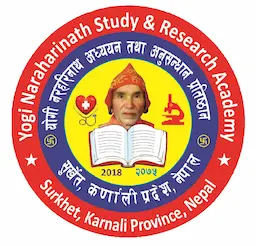Overview
Health Assistant (PCL in General Medicine) at Surkhet Education Development Academy (SEDA)
The Health Assistant (HA) program at Surkhet Education Development Academy (SEDA), Jarbuta–Birendranagar, follows the CTEVT Proficiency Certificate Level in General Medicine (Yearly system, 3 years).
It prepares mid-level practitioners for primary care, emergency response, and community health services across Karnali and beyond.
Highlights
-
Affiliation: CTEVT (national TVET apex body).
-
Program Length & System: 3 years, yearly system (≈35 academic weeks/year).
-
Group Size: Up to 40 per CTEVT standards.
-
Licensure Pathway: Graduates pursue registration with the Nepal Health Professional Council (NHPC).
-
Career Track: Eligible for Non-Gazetted 1st Class/Level-5 roles (e.g., Health Post/PHCC).
Curriculum Details
The CTEVT-approved curriculum blends basic medical sciences, clinical medicine, public/community health, and management, progressing from foundations to supervised practice:
-
Foundations (Year 1): Anatomy, Physiology, Biochemistry; Pharmacology basics; Pathology & Microbiology; Social Studies; First Aid.
-
Clinical Sciences (Years 2–3): Medicine, Surgery (incl. ortho), Pediatrics, Obstetrics & Gynecology, ENT, Eye, Dermatology, Psychiatry; Health Education & Promotion; Primary Health Care/Family Health; Health Management.
-
Practicums: Clinical postings, Epidemiology & Community Diagnosis, Comprehensive Clinical Practicum, and Comprehensive Community Field Practicum.
Objectives (CTEVT-aligned)
Graduates will be able to: assess patients and make provisional diagnoses; administer medications and treatment; perform routine investigations and minor medical/surgical procedures; identify and manage common emergencies; provide MNCH, nutrition, and family-planning services at HP/PHCC levels; implement national programs; maintain records; supervise junior staff; and contribute to community health promotion.
Scope
HA graduates serve in health posts, primary care centers, hospitals, NGOs/INGOs, and community programs, with eligibility for Level-5 public service roles and progression to higher studies (per university rules).
Learning Outcomes
-
Take focused histories; perform systematic examinations; formulate provisional diagnoses
-
Stabilize and refer emergencies appropriately
-
Conduct basic lab procedures and interpret common tests
-
Deliver immunization, maternal–child health, nutrition counseling, and NCD screening
-
Plan, implement, and evaluate community health education activities
Skill Development Modules
-
Emergency & First Response: wound care, splintage, shock management
-
Procedures: injections, IV line, catheterization, wound suturing (as per scope)
-
Clinical Rotations: medicine, surgery, pediatrics, OBGY, ENT, ophthalmology
-
Public Health: community diagnosis, outbreak investigation, health promotion campaigns
Teaching Methodology
SEDA delivers the CTEVT model: classroom theory + skills-lab + hospital postings + community fieldwork, with continuous internal assessment and final board examinations. Minimum 90% attendance per subject is required to sit final exams; re-exam provisions apply per CTEVT rules.
Admission Requirements
-
SEE/SLC (or equivalent) with minimum GPA 2.0, graded in Compulsory Mathematics, English, and Science; or CMA (or equivalent) with ≥68.33%.
-
Pass the CTEVT entrance examination.
-
Additional institutional formalities (medical fitness, documents) apply at the time of admission.
Career Opportunities
-
Primary care roles in HP/PHCCs, local hospitals, and outreach clinics
-
Program implementation under national health priorities and local governments
-
NHPC registration route for legal practice; PSC Level-5 eligibility for government service (as per prevailing rules).
Scholarships and Financial Aid
Under CTEVT Classified Scholarships, institutions with a 40-seat quota provide three classified scholarships (allocation follows annual CTEVT notices). Province-level distribution and separate merit schemes may apply.
Why Choose This Course?
-
Local access in Surkhet: Train close to home and serve your community.
-
Structured pathway: Yearly system with clear practicum milestones and NHPC licensure route.
-
Workforce relevance: Aligns with real needs of Karnali’s primary care network and public service opportunities.
Conclusion
SEDA’s HA program offers a competency-based, practice-oriented route to become a frontline health professional—grounded in the official CTEVT 2024 curriculum, with defined pathways to NHPC registration and Level-5 service. For current intakes, seats, and deadlines, follow the latest CTEVT and institutional notices.



















